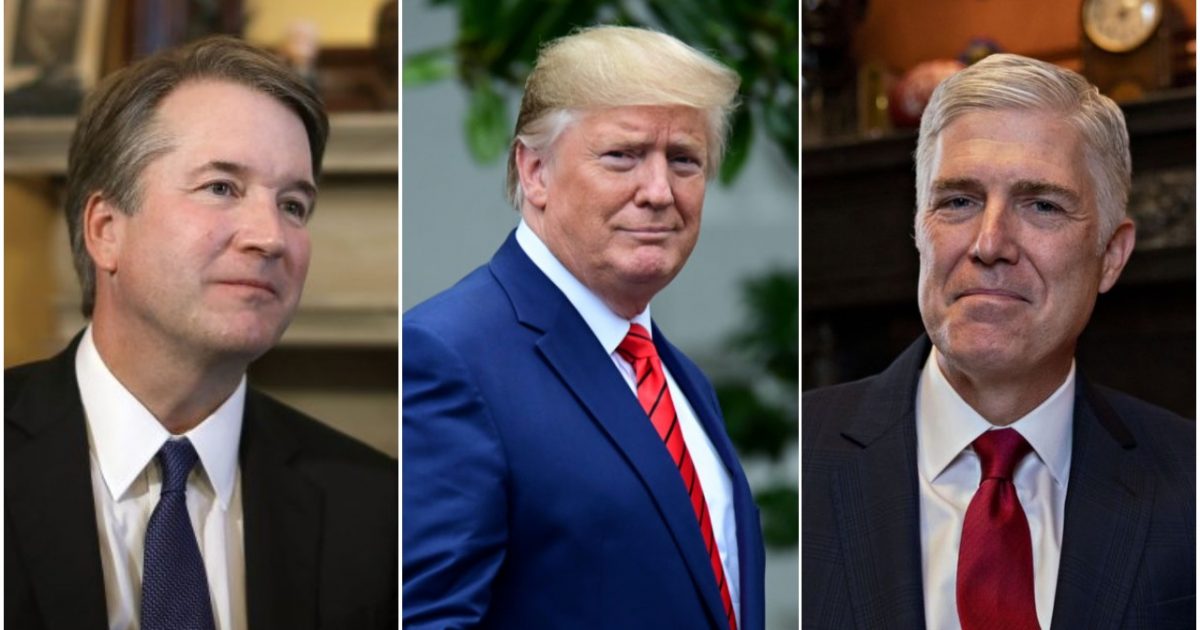
Trump Supreme Court appointees Brett Kavanaugh and Neil Gorsuch have indicated they may work together to restore the nondelegation doctrine, a concept that prevents Congress from delegating its legislative authority to a different branch of government.
A recent ruling from June, Gundy v. United States, centered around a 2006 law called the Sex Offender Registration and Notification Act (SORNA). The law created mandates on sex offenders to give certain personal information to the authorities. A provision of the law was challenged based on its dubious constitutionality.
“The Attorney General shall have the authority to specify the applicability of the requirements of this subchapter to sex offenders convicted before the enactment of this chapter,” the law reads.
This provision gave the Attorney General broad and overreaching powers to deal with roughly 500,000 offenders who were convicted before the passage of SORNA. Although SORNA was narrowly affirmed by the high court, Gorsuch wrote a dissent against the ruling.
“The rule that prevents Congress from giving the executive carte blanche to write laws for sex offenders is the same rule that protects everyone else,” Gorsuch wrote in his dissent, adding that the SCOTUS decision marks “the end of any meaningful enforcement of our separation of powers.”
Kavanaugh did not take part in the Gundy ruling, but indicated in a statement regarding the denial of certiorari for Paul v. United States that he believes Gorsuch was correct in his dissent.
“In order for an executive or independent agency to exercise regulatory authority over a major policy question of great economic and political importance, Congress must either: (i) expressly and specifically decide the major policy question itself and delegate to the agency the authority to regulate and enforce; or (ii) expressly and specifically delegate to the agency the authority both to decide the major policy question and to regulate and enforce,” Kavanaugh explained in his statement.
“The opinions of Justice Rehnquist and Justice Gorsuch would not allow that second category—congressional delegations to agencies of authority to decide major policy questions—even if Congress expressly and specifically delegates that authority,” Kavanaugh added. “Under their approach, Congress could delegate to agencies the authority to decide less-major or fillup-the-details decisions.”
Kavanaugh wrote laudingly of “Justice Gorsuch’s scholarly analysis of the Constitution’s nondelegation doctrine,” adding that his “thoughtful” remarks “raised important points that may warrant further consideration in future cases.”
Liberals are already freaking out at the possibility of Gorsuch and Kavanaugh possibly combining their efforts to reign in the overbearing federal bureaucracy:
“The list of statutes susceptible to attack under a revived nondelegation doctrine is lengthy. Campaign finance laws that entrust the Federal Election Commission to limit coordination between political campaigns and outside groups? Likely gone. (Such coordination allows candidates to easily skirt campaign finance limits.) Workplace laws that charge the Department of Labor with adjusting wage, hour, and overtime rules? Possibly doomed, as well. Laws regulating drugs, tobacco, firearms, crime, and immigration are shot through with significant delegations to federal agencies. Those may soon be on the chopping block.
Worse, the nondelegation doctrine may be applied in a manner that’s inconsistent—and politically charged—because the standard is so subjective: A “major policy question” is whatever five justices say it is, and there may be overlap between what those justices say and what the Republican Party desires.
Defenders of the nondelegation doctrine like Neil Gorsuch and Kavanaugh insist that their theory would restore legislative power to Congress. That is misleading at best. The doctrine would limit Congress’ power to delegate authority to agencies, giving courts a new veto over the people’s representatives. It is a theory that aggrandizes the dominance of courts over Congress, not Congress over agencies. And it is resurgent just as Republicans gain control over the judiciary.”
President Trump’s remaking of the federal judiciary will have long-lasting ramifications, many of which will be substantial for conservatives and libertarians interested in limiting government overreach.



